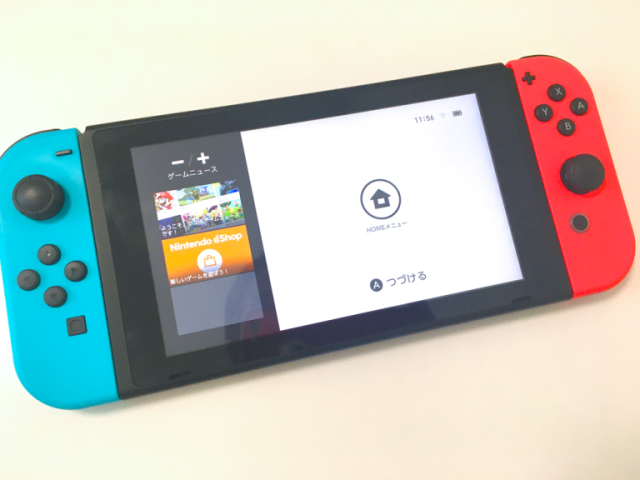
Oh, but of course they’re allowed to continue studying until any time of night.
A government crackdown on video games sounds, ironically, like the plot to an edgy near-future-setting video game from the mid ‘90s. “In the year 2020, Governor Nobrane Dorkmyer has banned video games, turning the citizens of Coast Rock City into spiritless zombies. It’s up to YOU to bring the fun back to the people as you blaze through six action-packed levels!”
But here in the real 2020, there’s now an actual video game ban in Japan. On the morning of March 18, the prefectural assembly of Kagawa passed the Ordinance for Measures Against Internet and Game Addiction, which prohibits children under the age of 18 from playing video games for more than 60 minutes on weekdays. On weekends, though, kids are allowed to go crazy and play for up to 90 minutes!
The logic behind the measure (which was just proposed in January) is the familiar “Playing too many video games is bad for kids,” also with the familiar lack of concrete reasons why, and it’s not like the ordinance mandates kids spend more time studying, exercising, or doing any other industrious, traditionally wholesome endeavors. Apparently if kids switch off their game consoles and go immediately to watching TV dramas, all while staying in the exact same prone position on the couch, Kagawa’s politicians feel like they’ve earned the right to pat themselves on the back over the positive effect they’re having on the prefecture’s youth.
▼ Finally, the children are safe.
Video games are far from the only leisure activity it’s possible to spend more than an hour on, though. Watching a baseball game or soccer match on TV? That’s definitely more than an hour. Watching a movie is also going to take far more than 60 minutes, and there are plenty of music albums with run times over an hour too. It’d be one thing if Kagawa was banning any over-60-minute leisure activity for minors during the week (though misguided in its own, separate way), but that’s not what’s happening here. Maybe the thinking is that watching sports encourages kids to be more physically active themselves, and that even the most vapid rom-com or pop song is still part of the artistic fields of acting or music, which can spark an interest in those disciplines. But shouldn’t that also apply to video games, which are a culmination of not only audio and visual art, but also technological and scientific skill in programming and physics modeling?
In addition, the ordinance says that children of junior high school-age or younger are not to use smartphones after 9 p.m., and those in high school have to stop at 10. Oh, but don’t worry, the ordinance makes a special exception: kids can use their phones until as late as they want if they’re using them to study. Of course, there are plenty of people who are deeply concerned with children’s well-being and mental development who would say “Kids in junior high, and especially elementary school, shouldn’t have so much homework that they’re still studying past 9 p.m.,” but the ordinance at least provides a method for kids to start getting used to the soul-crushing situation of doing massive amounts of overtime, an all too common aspect of working in Japan.
▼ No going to bed until you do some more studying and teach yourself how to poop in the toilet!
Arguably the most exasperating part of the ordinance is that by setting time limits, it effectively removes responsibility from kids themselves. Just as there are days when you’ll have more than an hour of free time, there are also days when the things you have to do leave you with not even a whole hour to goof off. Learning to differentiate between those two is an important life skill, and one that it’s much safer to develop as a kid, where poor time management and unfulfilled responsibilities mean a bad grade on a test. As an adult, the same sort of behavior can lead to getting fired from a job or kicked out of an apartment. It’s not like the number of temptations get any smaller once you grow up either, when you’re suddenly granted access to alcohol, night clubs, host/hostess bars, pachinko parlors, and all sorts of other pleasurable but non-productive things adults have to be able to show sufficient self-restraint in regards to.
On the plus side, there’s currently no penalty for violating the ordinance, nor any framework to enforce it, though the motion does acknowledge that “parents and caregivers have a responsibility” to encourage their children to comply with it. However, in what’s perhaps the cruelest part of all, the Ordinance for Measures Against Internet and Game Addiction goes into effect extremely soon, on April 1, at which point it’s possible a lot of schools will still be closed and families encouraged to keep their kids inside at home because of the coronavirus outbreak. But remember, children of Japan, it’s still OK to watch an unlimited number of hours of anime every single day, and if it’s after 9, you can always say that you’re reading SoraNews24 in order to study English.
Source: Livedoor News/Mainichi Shimbun via Hachima Kiko, Nihon Keizai Shimbun
Top image ©SoraNew24
Insert images: Pakutaso (1, 2)
● Want to hear about SoraNews24’s latest articles as soon as they’re published? Follow us on Facebook and Twitter!
Follow Casey on Twitter, where he somehow managed to get an education and a job despite growing up in the lawless environment of a world where the government didn’t tell him how long he could play Final Fantasy VI or Valkyrie Profile for.



 Does Tokyo need a legal limit on kids’ video game playing time? Governor gives opinion
Does Tokyo need a legal limit on kids’ video game playing time? Governor gives opinion Japanese politicians want to set daily limit on how much time kids can spend playing video games
Japanese politicians want to set daily limit on how much time kids can spend playing video games Lawyers say Japanese video game ban for kids violates constitution, call for abolition
Lawyers say Japanese video game ban for kids violates constitution, call for abolition Yakuza may be blocked from using all expressways in Japan within the decade
Yakuza may be blocked from using all expressways in Japan within the decade Japanese politicians want to make walking while looking at your smartphone illegal
Japanese politicians want to make walking while looking at your smartphone illegal McDonald’s new Happy Meals offer up cute and practical Sanrio lifestyle goods
McDonald’s new Happy Meals offer up cute and practical Sanrio lifestyle goods All-you-can-drink Starbucks and amazing views part of Tokyo’s new 170 meter-high sky lounge
All-you-can-drink Starbucks and amazing views part of Tokyo’s new 170 meter-high sky lounge Studio Ghibli glasses cases let anime characters keep an eye on your spectacles
Studio Ghibli glasses cases let anime characters keep an eye on your spectacles Super Nintendo World expansion gets delayed for several months at Universal Studios Japan
Super Nintendo World expansion gets delayed for several months at Universal Studios Japan Starbucks reopens at Shibuya Scramble Crossing with new look and design concept
Starbucks reopens at Shibuya Scramble Crossing with new look and design concept Kyoto’s 100 Demons yokai monster parade returns!
Kyoto’s 100 Demons yokai monster parade returns! Constipated cats, sticky blue poop and more: Japan’s 9 weirdest vending machine toys
Constipated cats, sticky blue poop and more: Japan’s 9 weirdest vending machine toys Our Japanese reporter visits Costco in the U.S., finds super American and very Japanese things
Our Japanese reporter visits Costco in the U.S., finds super American and very Japanese things Disney princesses get official manga makeovers for Manga Princess Cafe opening in Tokyo
Disney princesses get official manga makeovers for Manga Princess Cafe opening in Tokyo Kagawa Prefecture becoming Slowpoke Paradise this spring
Kagawa Prefecture becoming Slowpoke Paradise this spring More foreign tourists than ever before in history visited Japan last month
More foreign tourists than ever before in history visited Japan last month Beautiful new Final Fantasy T-shirt collection on the way from Uniqlo【Photos】
Beautiful new Final Fantasy T-shirt collection on the way from Uniqlo【Photos】 Is the new Shinkansen Train Desk ticket worth it?
Is the new Shinkansen Train Desk ticket worth it? Foreign English teachers in Japan pick their favorite Japanese-language phrases【Survey】
Foreign English teachers in Japan pick their favorite Japanese-language phrases【Survey】 Japanese convenience store packs a whole bento into an onigiri rice ball
Japanese convenience store packs a whole bento into an onigiri rice ball We try out “Chan Ramen”, an underground type of ramen popular in the ramen community
We try out “Chan Ramen”, an underground type of ramen popular in the ramen community Studio Ghibli releases Kiki’s Delivery Service chocolate cake pouches in Japan
Studio Ghibli releases Kiki’s Delivery Service chocolate cake pouches in Japan Japan’s bone-breaking and record-breaking roller coaster is permanently shutting down
Japan’s bone-breaking and record-breaking roller coaster is permanently shutting down New definition of “Japanese whiskey” goes into effect to prevent fakes from fooling overseas buyers
New definition of “Japanese whiskey” goes into effect to prevent fakes from fooling overseas buyers Studio Ghibli unveils Mother’s Day gift set that captures the love in My Neighbour Totoro
Studio Ghibli unveils Mother’s Day gift set that captures the love in My Neighbour Totoro Foreign passenger shoves conductor on one of the last full runs for Japan’s Thunderbird train
Foreign passenger shoves conductor on one of the last full runs for Japan’s Thunderbird train Domino’s Japan now sells…pizza ears?
Domino’s Japan now sells…pizza ears? New Japanese KitKat flavour stars Sanrio characters, including Hello Kitty
New Japanese KitKat flavour stars Sanrio characters, including Hello Kitty Kyoto creates new for-tourist buses to address overtourism with higher prices, faster rides
Kyoto creates new for-tourist buses to address overtourism with higher prices, faster rides Sales of Japan’s most convenient train ticket/shopping payment cards suspended indefinitely
Sales of Japan’s most convenient train ticket/shopping payment cards suspended indefinitely Sold-out Studio Ghibli desktop humidifiers are back so Totoro can help you through the dry season
Sold-out Studio Ghibli desktop humidifiers are back so Totoro can help you through the dry season Japanese government to make first change to romanization spelling rules since the 1950s
Japanese government to make first change to romanization spelling rules since the 1950s Ghibli founders Toshio Suzuki and Hayao Miyazaki contribute to Japanese whisky Totoro label design
Ghibli founders Toshio Suzuki and Hayao Miyazaki contribute to Japanese whisky Totoro label design Doraemon found buried at sea as scene from 1993 anime becomes real life【Photos】
Doraemon found buried at sea as scene from 1993 anime becomes real life【Photos】 Tokyo’s most famous Starbucks is closed
Tokyo’s most famous Starbucks is closed One Piece characters’ nationalities revealed, but fans have mixed opinions
One Piece characters’ nationalities revealed, but fans have mixed opinions We asked a Uniqlo employee what four things we should buy and their suggestions didn’t disappoint
We asked a Uniqlo employee what four things we should buy and their suggestions didn’t disappoint Princesses, fruits, and blacksmiths: Study reveals the 30 most unusual family names in Japan
Princesses, fruits, and blacksmiths: Study reveals the 30 most unusual family names in Japan Saitama officially forbids walking up and down escalators
Saitama officially forbids walking up and down escalators Mayor of Osaka wants to legally control when kids can and can’t use smartphones in their own home
Mayor of Osaka wants to legally control when kids can and can’t use smartphones in their own home Law would make it illegal for Osaka adults to sleep with schoolgirls unless they REALLY like them
Law would make it illegal for Osaka adults to sleep with schoolgirls unless they REALLY like them Complaints lead to talks about whether noise from schools should be regulated
Complaints lead to talks about whether noise from schools should be regulated Research from Tohoku University claims video games impair brain development in children
Research from Tohoku University claims video games impair brain development in children Tokyo’s ban on high school girls working in the controversial JK industry goes into effect this summer
Tokyo’s ban on high school girls working in the controversial JK industry goes into effect this summer Japanese government to outlaw carrying unbound knives on trains starting next year
Japanese government to outlaw carrying unbound knives on trains starting next year Japanese government, please stop using floppy discs, politician asks
Japanese government, please stop using floppy discs, politician asks Middle school teacher moonlighting as host bar host arrested in Nagoya
Middle school teacher moonlighting as host bar host arrested in Nagoya Hate speech may soon be punishable by a 500,000-yen fine in one of Japan’s largest cities
Hate speech may soon be punishable by a 500,000-yen fine in one of Japan’s largest cities “No ball games” & “No practicing comedy routines”: City Parks in Japan let you do less and less
“No ball games” & “No practicing comedy routines”: City Parks in Japan let you do less and less Bear sightings skyrocket in Japanese town feuding with local hunting association
Bear sightings skyrocket in Japanese town feuding with local hunting association What do Japanese kids want to be when they grow up? For 30 percent of boys, YouTubers, survey says
What do Japanese kids want to be when they grow up? For 30 percent of boys, YouTubers, survey says Man arrested after forcing his 9-year-old stepson to play violent video games
Man arrested after forcing his 9-year-old stepson to play violent video games Tokyo proposes new law cracking down on requests for teens to share nude selfies online
Tokyo proposes new law cracking down on requests for teens to share nude selfies online
Leave a Reply